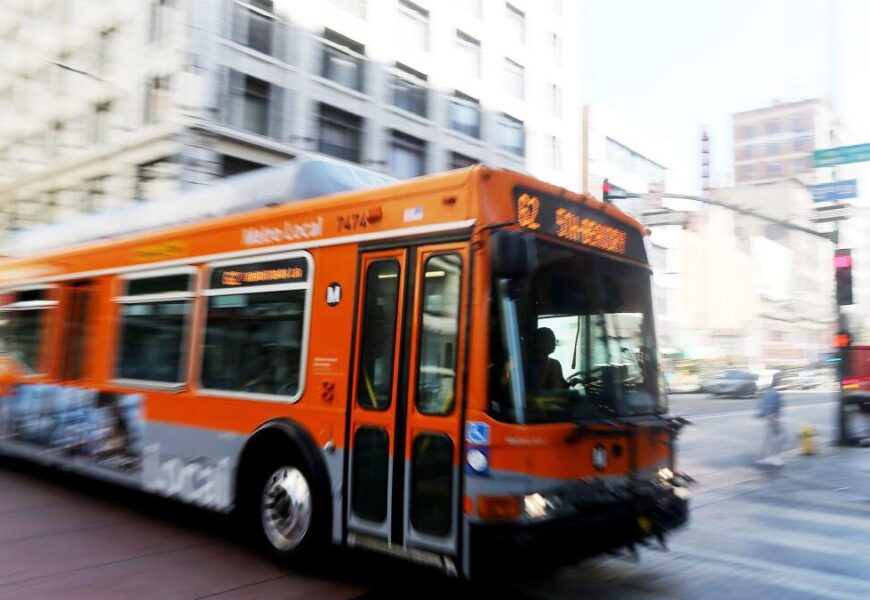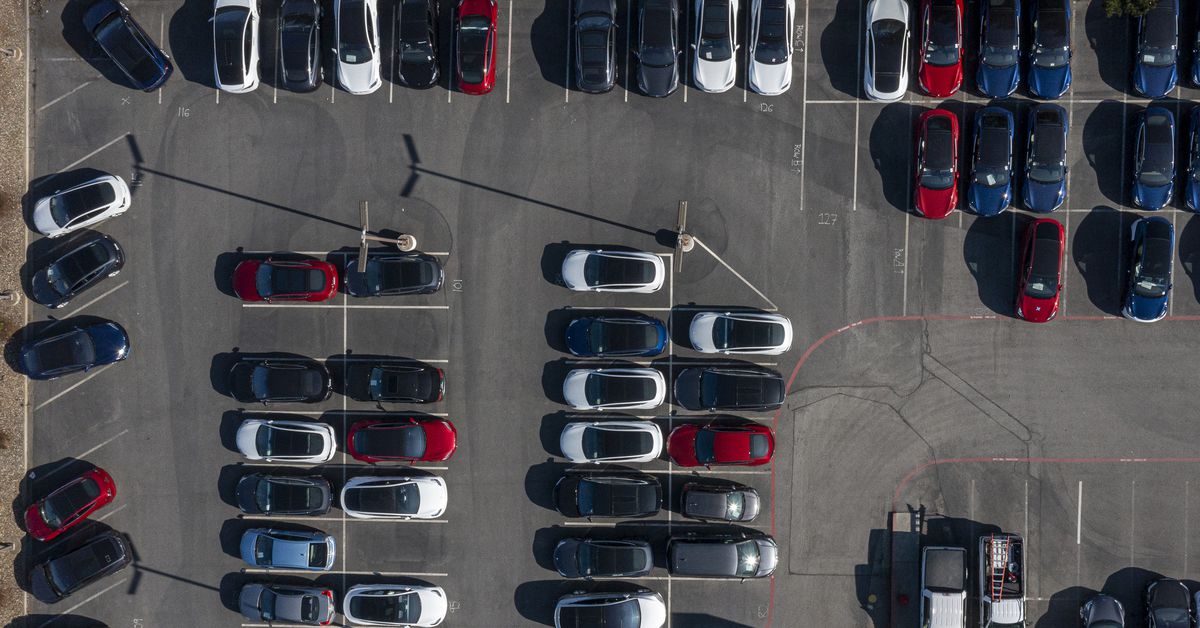Artificial intelligence-powered cameras are being installed on Los Angeles Metro buses to help ticket cars parked in bus lanes.
Testing is planned for this summer and the program is expected to go live by the end of 2024, Metro said, after two months of community outreach to “ensure that the public is aware of the purpose, timing and impacts of this new program.”
“Once cameras are installed, there will be a 60-day warning period for drivers. During the first 60 days, warning citations will only be used as informational notices and will not result in any violations,” the agency said.
The program, designed by technology company Hayden AI, is meant to improve bus times, increase ridership and address mobility concerns. Metro’s Board of Directors approved an $11 million-contract with the company last year to roll out 100 camera systems. The agreement started in December and is supposed to last roughly five years.
The cameras will be mounted inside Metro bus windshields to monitor for parked vehicles in bus lanes and at bus stops, in order to help enforce new parking rules after L.A. City Council approved a fine last year for those who illegally park in bus lanes.
“Blocking bus stop zones can create accessibility issues for passengers with disabilities, who rely on level boarding between the bus stop curbside and boarding the bus,” a Metro board report said last year.
About 15 of the cameras have been installed on buses along line 720, from Santa Monica to Downtown L.A via Wilshire Boulevard, and line 212, from Hollywood/Vine to Hawthorne/Lennox stations via La Brea Avenue, Metro said. Cameras will also be installed on some buses along lines 910, 950 and 70 from San Pedro, Downtown L.A. and El Monte.
While the AI-powered security cameras will constantly scan for illegally parked cars, Charles Territo, Hayden AI chief growth officer, said the technology is trained to record only when a potential violation is observed.
“If the bus is moving and there’s no vehicle parked in the lane, it’s not recording any data,” he said. “Only when the system observes a vehicle parked illegally in a bus lane or a bus stop does it record the license plate and capture video of the event.”
Once a recording is made, it will be submitted to L.A. Department of Transportation where a human will assess whether a ticket should be issued.
The use of video imaging to enforce parking violations was legalized in 2021. Footage that does not include a parking violation must be destroyed within 15 days, the law states. Any recording of a parking violation can be retained for six months, or 60 days “after the final disposition of the citation.”
“The reason why that’s somewhat open-ended is because individuals have a certain amount of time to adjudicate their violation,” Territo said.
A person who is ticketed would have access to the recording, Territo said, and the ability to challenge the violation — a process that can take months.
Similar programs are being used in Washington, D.C., and New York City as the use of artificial intelligence continues to expand for travel safety.
Recently, Southern California’s regional rail system Metrolink was granted $1.3 million to develop an AI-powered security system to detect unexpected movement on tracks.










